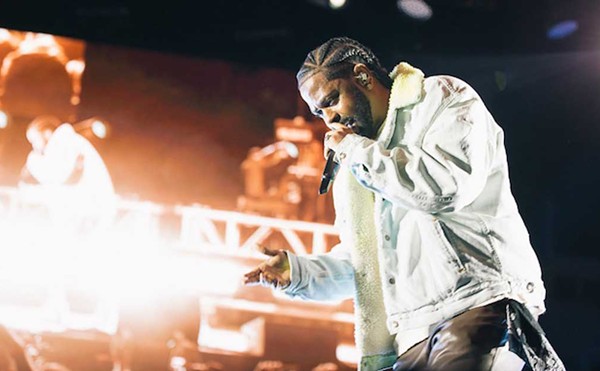In the 1980s, Youssou N’Dour revolutionized West African music, creating a style called mbalax, fusing funk, reggae and salsa with traditional Senegalese Wolof rhythms. Dakar quickly became known as one of the world’s musical hotspots, with scorching mbalax bands enlivening dance floors though the night. However, in the years since, while N’Dour keeps the bodies shaking in Dakar’s nightclubs, he has embarked on quite a different international recording career, choosing to record pop albums, keeping the mbalax only for his local fans. Fortunately, his apprentice, Cheikh Lo, has other ideas.
Bambay Gueej is Lo’s second solo album after years working in N’Dour’s shadows as a guitarist and percussionist. Here, Lo follows 1997’s mbalax unplugged classic Ne la Thiass with an album that’s destined to be regarded as an African classic. Lo brings touches of Nigerian African Beat king Fela Kuti along with a hot brass section to his lineup. The result is an album part Senegalese, part funk, part Afrobeat and 100 percent infectious. Bambay Gueej opens with a remarkable version of the Guillermo Portabales Cuban classic “El Carretero.” Here Lo replaces the bongos with talking drums, adds a driving bass line and changes the original Spanish to Wolof lyrics in an outcry against homelessness. With a passion reminiscent of Bob Marley, Lo is quickly emerging as a West African musical prophet.
One of the most touching moments of Bambay Gueej is the song “Bobo-Dioulasso” where Malian diva Oumou Sangaré joins Lo in a stirring song that unites the Senegalese mbalax world with Mali’s Wassoulou.
Will N’Dour follow Lo’s lead and bring the real mbalax to the world? Perhaps Bambay Gueej may change N’Dour’s mind. The album is certainly one of the best African records of the year. We can only hope that more lie in the future.
Dan Rosenberg writes about music for the Metro Times. E-Mail [email protected].





